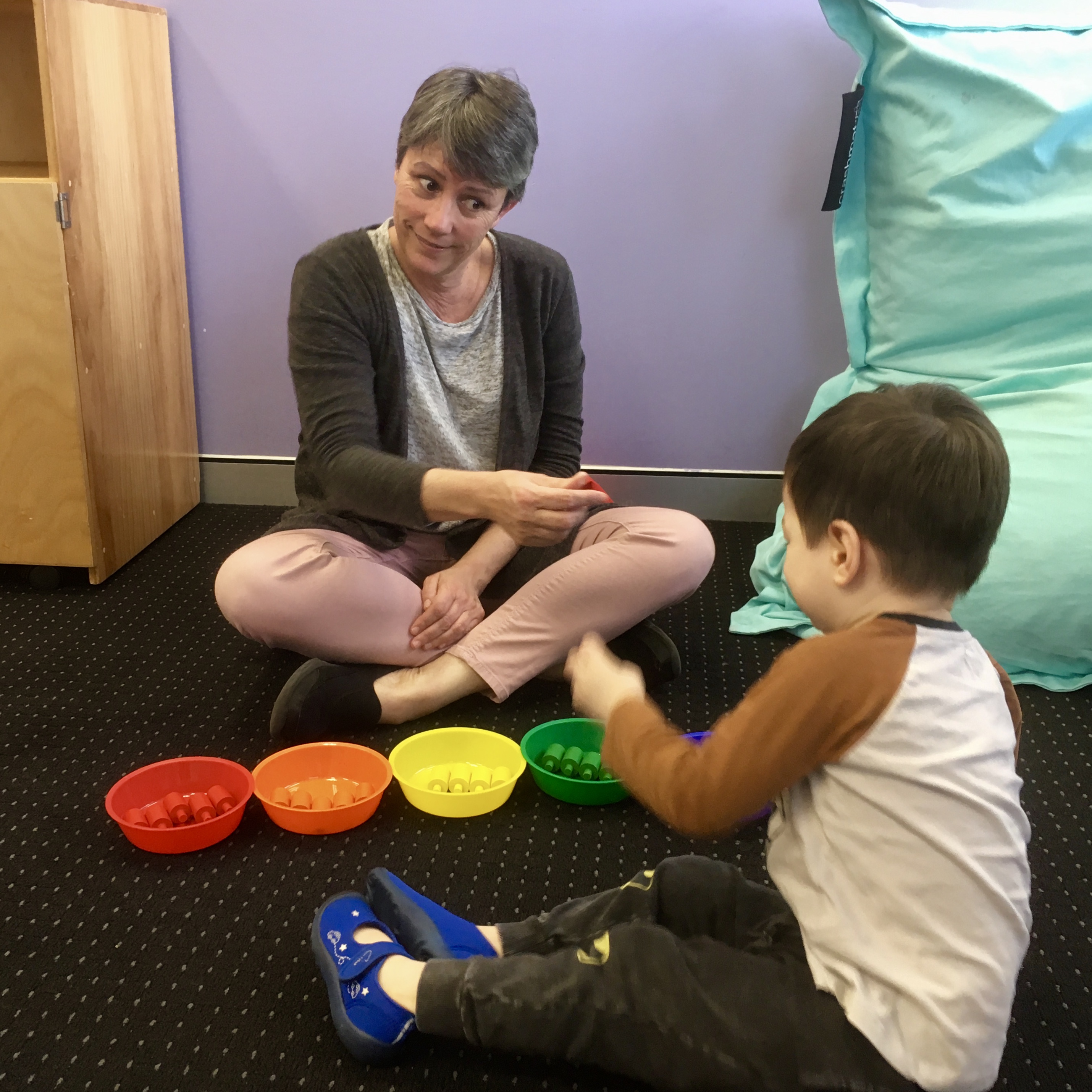
Empowering Your Child with Early Start Denver Model (ESDM) Therapy in Sydney, Bondi Junction, and Mascot
At OneOnOne Children’s Therapy, we help young children with autism thrive using the Early Start Denver Model (ESDM). Our certified therapists in Bondi Junction and Mascot provide this proven therapy to enhance communication, social skills, and cognitive development. If you’re seeking effective autism therapy in Sydney, ESDM offers a comprehensive, play-based approach tailored to your child’s unique needs.
What is the Early Start Denver Model (ESDM)?
The Early Start Denver Model (ESDM) is a dynamic, play-based intervention for children aged 12 to 48 months with autism. ESDM focuses on promoting key developmental skills, such as communication, social engagement, and motor abilities, through fun, interactive activities. This approach helps children learn at their own pace while ensuring they build crucial skills that lead to long-term success.
Who Benefits from the Early Start Denver Model (ESDM)?
Children aged 2-5 years on the autism spectrum benefit most from ESDM therapy. The program uses a play-based format to teach communication, social skills, imitation, and play. Through engaging activities, your child learns new skills every 20-30 seconds, ensuring rapid, effective progress.
With its structured levels based on developmental stages, ESDM ensures that children work on appropriate goals for their age and abilities, making it ideal for early intervention.
How Does ESDM Work?
ESDM uses fun, play-based interactions to teach children critical developmental skills. Certified ESDM therapists at OneOnOne Children’s Therapy focus on activities that your child finds interesting and motivating. We structure the therapy around your child’s preferences to keep them engaged while learning essential skills.
Key techniques include:
- Child-Led Activities: Your child chooses the activities, making therapy more engaging.
- Rapid Skill Development: Therapists teach new skills at a fast pace, ensuring your child consistently learns.
- Positive Reinforcement: We use positive behaviour strategies to shape better social and communication skills.
- Parental Involvement: We actively involve parents in the therapy process, empowering you to reinforce skills at home.
In addition, we offer the Parent-ESDM Program, a 12-week course designed to train parents in applying ESDM principles at home. Parents play a crucial role in their child’s progress by incorporating these strategies into everyday activities.
Why Choose ESDM for Autism Therapy?
The Early Start Denver Model stands out because of its evidence-based effectiveness. Research shows that children receiving ESDM therapy make significant improvements in language, social interaction, and adaptive behaviour. ESDM therapy is flexible and can be adapted for clinic, home, or preschool environments, ensuring that your child benefits from learning in familiar surroundings.
- Proven Results: Studies confirm that children in ESDM programs show greater developmental gains than those in traditional therapies.
- Customised for Your Child: We tailor every session to your child’s unique strengths and challenges, ensuring personalised progress.
- Natural Learning: By integrating play into the learning process, ESDM helps your child develop skills naturally, making therapy enjoyable and effective.
What Does an ESDM Session Look Like?
During an ESDM session, the Certified ESDM therapist engages your child in interactive play designed to boost communication, social skills, and motor development. The therapist selects activities based on your child’s interests, developmental stage, and personal goals. This child-led approach ensures your child stays motivated while making significant progress.
ESDM sessions take place in various settings, including:
- Clinic: Structured sessions in our Bondi Junction or Mascot clinics.
- Home: Therapy in the comfort of your child’s home, where they feel most secure.
- Daycare or Preschool: Our therapists collaborate with educators to incorporate ESDM techniques into your child’s daily routine.
How Do We Set and Review ESDM Goals?
At OneOnOne Children’s Therapy, our Certified ESDM Therapists assess each child using the ESDM curriculum checklist. This assessment helps us identify your child’s current developmental stage and set specific goals. We update these goals frequently, ensuring your child continues progressing without waiting for formal reviews. Our proactive approach allows us to adjust the program as your child grows, ensuring consistent improvements.
Who Delivers ESDM Therapy?
Our team of Certified ESDM Therapists brings expertise in Occupational Therapy, Speech Pathology, and Psychology. Each therapist undergoes extensive training to deliver ESDM with fidelity, ensuring your child receives the best possible care. At OneOnOne Children’s Therapy, we are proud to have one of the largest ESDM programs in Sydney, providing top-notch care for families in Bondi Junction and Mascot.
Why Choose OneOnOne Children’s Therapy for ESDM?
Families choose OneOnOne Children’s Therapy because we offer a comprehensive, family-centred approach to early autism intervention. Our Bondi Junction and Mascot clinics provide a nurturing environment where your child can develop the skills they need to succeed.
- Experienced Team: Our therapists have extensive experience working with children with autism, ensuring your child receives expert care.
- Holistic Approach: We collaborate across disciplines to support every aspect of your child’s development.
- Ongoing Support: We offer continuous guidance to parents, helping you reinforce skills at home and track your child’s progress.
Ready to Empower Your Child with ESDM?
If you’re looking for autism therapy in Sydney, Bondi Junction, or Mascot, the Early Start Denver Model at OneOnOne Children’s Therapy can make a significant difference in your child’s development. We’re here to help your child thrive and reach their full potential through play-based, research-backed therapy.
Contact Us Today!
Call us at (02) 8065 7837 or email us to book a free 30-minute consultation. Learn how ESDM can transform your child’s life and give them the tools they need for success. Our AHPRA-registered Occupational Therapists, Speech Pathologists, and Certified ESDM Therapists are ready to support you.
